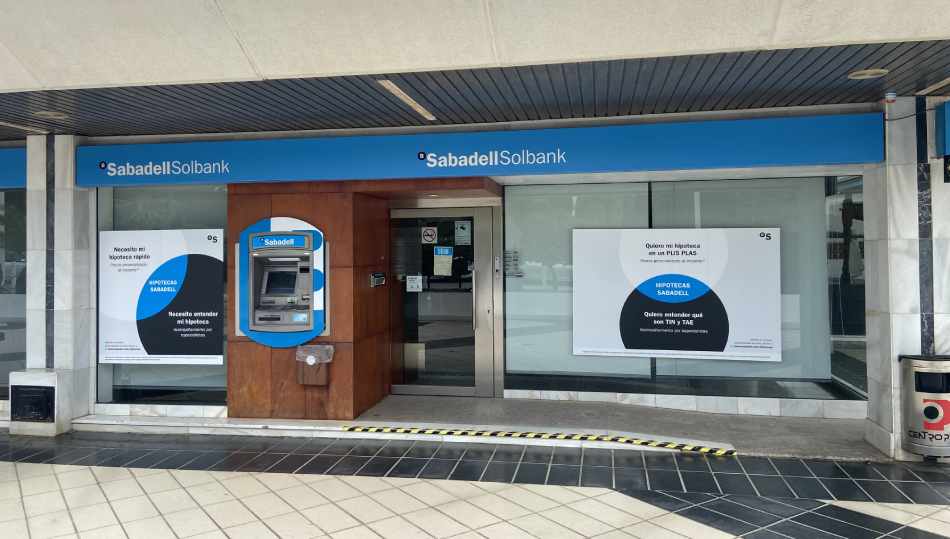Are you planning to settle in Spain? Then learn how to open a bank account.
Wondering if foreigners can open a bank account in Spain? The answer is yes.
The process is easy. Banks like BBVA, Banco Sabadell, and Santander have many account types.
You can choose from current to savings and more.
Spain offers both traditional banks and online services like N26 and Revolut. While you don’t have to have a bank account, it’s very useful.
Opening an account is usually quick.
The Spanish Banking System and Account Types
The Spanish banking system is led by the Banco de España. This system includes over a hundred private banks, with many regional and international ones too.
This broad network shows Spain’s effort to keep its banking regulated.
It also makes it easy for EU passport holders to open a bank account in Spain.
Overview of Banking in Spain
Spain faced tough times, like a high unemployment rate of 27.7% in 2013. Despite these challenges, its banking system stayed strong and adaptable.
There are many banking options for both locals and those coming from abroad.
Comparing Resident and Non-Resident Bank Accounts
Wondering if can you can open a bank account as a non-resident? Spain has you covered.
Non-resident accounts are perfect for those not living in Spain all the time.
Resident accounts have more features, ideal for those who call Spain home. They help manage daily money matters.
Current Accounts and Savings Options
Choosing between current accounts in Spain and savings accounts in Spain matters a lot.
Current accounts help with everyday spending. Savings accounts help your money grow over time.
This boosts your financial health in Spain’s lively economy.
Digital and Mobile Banking Solutions
The move to digital bank accounts in Spain and mobile bank accounts in Spain fits many people’s needs nowadays. Digital banking makes managing money quick and easy.
You can handle your finances anytime, anywhere.
Getting into the Spanish economy might seem tricky, but choosing the right bank helps a lot. Spain’s banks are welcoming, with many account options a passport stamp away.
Remember, you’re not alone in figuring out Spain’s banks. There’s always help available to guide you to where you want to be financially.
Step-by-Step Process: How to Open Bank Account in Spain
Starting to set up your finances in Spain means knowing what you need for a bank account.
You may want a resident account with all services or a non-resident one for more freedom.
First, you have to collect many documents.
Documentation You’ll Need
If you’re opening a business bank account in Spain or a personal one, you need a few key items. Bring your passport or ID card and your Spanish NIE number.
To finish setting up a resident account, show proof of income and where you live in Spain.
For non-residents, it’s a bit harder. You need a special non-resident certificate and maybe a lease or property papers.
Opening an account can take 1 to 5 days.
Remember, banks in Spain may charge you for managing your account, making transfers, and for your debit card.
Make sure these fees fit your budget.
Choosing the Right Bank for Your Needs
Choosing a bank in Spain means looking at costs, services, and if they speak English.
Top banks like Santander, BBVA, and Banco Sabadell offer great options.
They have branches you can visit and modern online banking.
- Students might get deals like lower fees.
- Your money is safe up to €100,000 with the Deposit Guarantee Fund.
Opening an Account In-Person or Online
The digital world makes banking easy with online options like Openbank, N26, and Revolut.
These are good for setting up a business bank account from afar.
- You can confirm who you are with a video chat for digital banks.
- Visit a branch within six months to keep using your account without trouble.
Online banks are great for managing your money from different countries.
They are easy to use and mix new tech with old banking ways. Get ready for your Spanish adventure with the right bank.
Banking in Spain for Expats: Services and Fees
Opening a bank account in Spain is an important first step for expats. The Euro (€) is used here.
You might pay big fees when you take out money from US accounts.
This includes high ATM fees and big exchange rates. When you open your account, you’ll find different banking fees.
These can be yearly fees, debit card costs, and charges for using ATMs outside Spain. Also, watch out for fees and exchange rates when sending money abroad.
Digital or mobile bank accounts can be handy in Spain. Banks like Revolut, N26, Tomorrow, and Wise are popular with expats. They have lower fees and make opening accounts quick. They may not offer services like loans that big banks do. But, they’re great for mobile living.
If you’re from the US, remember to report big accounts. You need to do this with forms like the FBAR to FinCEN or IRS Form 114.
Some Spanish banks might not charge fees if you meet certain conditions. For example, having a “nomina” account with regular deposits helps.
Expats on retirement visas might not pay fees if they get enough money regularly.
Spanish banks usually open from 9 am to 2 pm. Remember, they may limit how much cash you can take out, especially during festivals.
You’ll mostly pay with cards, as few people use cheques now.
Despite less cash use, Spanish banks offer great service.
This includes personal bank managers and good online banking, fitting well with a busy international life.











